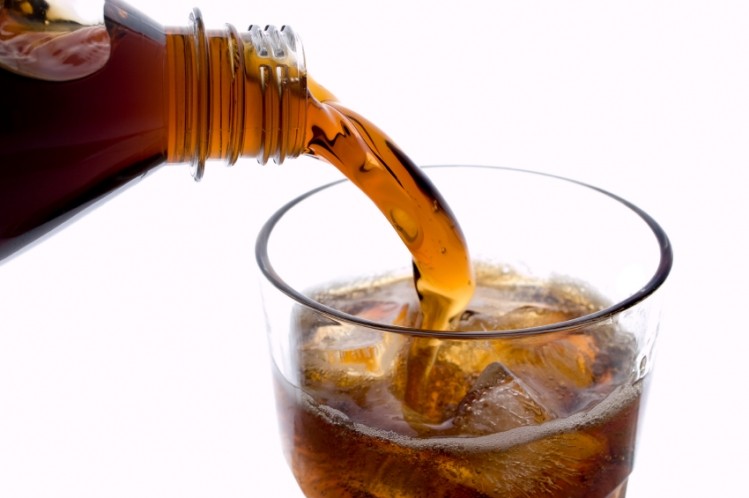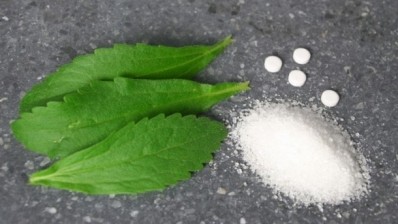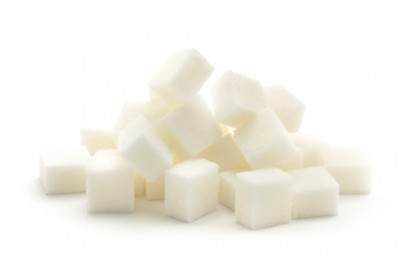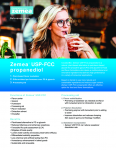Cargill: Ongoing sugar scrutiny has beverage formulators seeking alternatives

Ahead of this week’s Healthy Beverage Expo in Long Beach, CA, Paula Krogmann, Cargill’s director of technical services, caught up with FoodNavigator-USA on the impact of the FDA’s proposed labeling changes, the unique challenges of sugar reduction in beverages and where to find the most promising innovation.
Where Cargill is seeing the most movement in the beverage world is not in plant-based or maple waters, superfruit drinks or enhanced water for kids, but rather in line extensions related to the FDA's suggested changes to the Nutrition Facts panel—which adds a line for added sugar and increases emphasis on calories and serving sizes, among other adjustments.
“What I’m seeing lately is this response to FDA in terms of proposed label changes and what can manufacturers do to address that,” Krogmann said. This new focus on “added sugar” only compounds the negative attention sugar has gotten in recent years.
“There’s been so much emphasis on the whole sugar space in the last few years, starting with high-fructose corn syrup, which got so much negative press,” she said. “It’s continued to build to the point where it’s not just about HFCS, but all sugars. What can we do to reduce sugars so children aren’t suffering the consequences of too much sugar? It’s evolved from natural versus artificial to overall looking at sugars, the category.”
And yet, sugar reduction in the beverage space is not always as straightforward as it might seem, with challenges ranging from taste and mouthfeel to the mother of all—cost effectiveness.
The number-one challenge? Developing a tasty product, Krogmann said. “Finding the key to formulating a healthier beverage that tastes good is the biggest challenge. If it doesn’t taste good, consumers aren’t going to become repeat buyers.”
For many formulators, that also means the revamped product has to stand up to whatever consumers associate with the flagship brand. “Consumers always compare the reduced-sugar or low-calorie version to the full-calorie one, meaning product developers are up against a wall of using ingredients that aren’t equivalent in form and function to full sugar, but have to come close.”
It’s not just about sweetness
Sugar’s primary role is in lending sweetness, so if some or all of that sweetness is removed, formulators must find something else to replace that—be it a nutritive, non-nutritive or a combination of both sweeteners. “As people get into that lower calorie beverage space, more and more are looking to combinations to get that sweetness back,” Krogmann observed.
But removing most or all sugar solids also affects mouthfeel and body, which can in turn impact flavor and sweetness. What’s key there is maintaining consistent branding, as compensating for mouthfeel can result in longer ingredient lists, Krogmann said. “Whether it’s all natural or cleaner label, the message you give in your reduced-sugar beverage has to be consistent with the message you’re trying to get across in your brand.”
The third driver that unifies all manufacturers is cost. “Formulators want to find something that is cost-effective, which means it can be difficult for people to think outside line-item pricing.”
The next big sweetener alternative?
Among the most promising sweetener alternatives in beverage, stevia (marketed as ViaTech by Cargill) is a zero-calorie sweetener derived from purified stevia leaf extract that has become the darling of sugar replacers given its “all-natural” appeal and versatility in even difficult formulations. Erythritol (Zerose), a zero-calorie bulk sweetener, has a clean sweet taste that works well with stevia-based sweeteners. Sucromalt (Xtend), a low-glycemic, fully caloric sweetener that can reduce sugar by up to 50% on the label, is suitable to beverages and appealing from both a bulking and label simplification standpoint, Krogmann noted.
But all have their limitations. While stevia has no upper limits from an FDA perspective, it’s self-limiting in that using too much results in off flavors. On the other hand, erythritol’s GRAS upper limit of 3.5% in beverages limits its usage primarily to blending. “Plus, on all of these ingredients, the cost is self-limiting,” Krogmann added.
In an effort to address the evergreen cost issue, Cargill is working with Swiss supplier Evolva to commercialize fermented stevia, which uses fermentation technology to produce a range of commercially viable steviol glycosides using sustainable, low-cost, carbohydrate feedstocks.
“The whole intent is fermentation-based products will be more cost-effective than the leaf, which is where most stevia is sourced in the market today. You can derive the minor glycosides that might be sweeter or taste better using this technology,” Krogmann said.



















